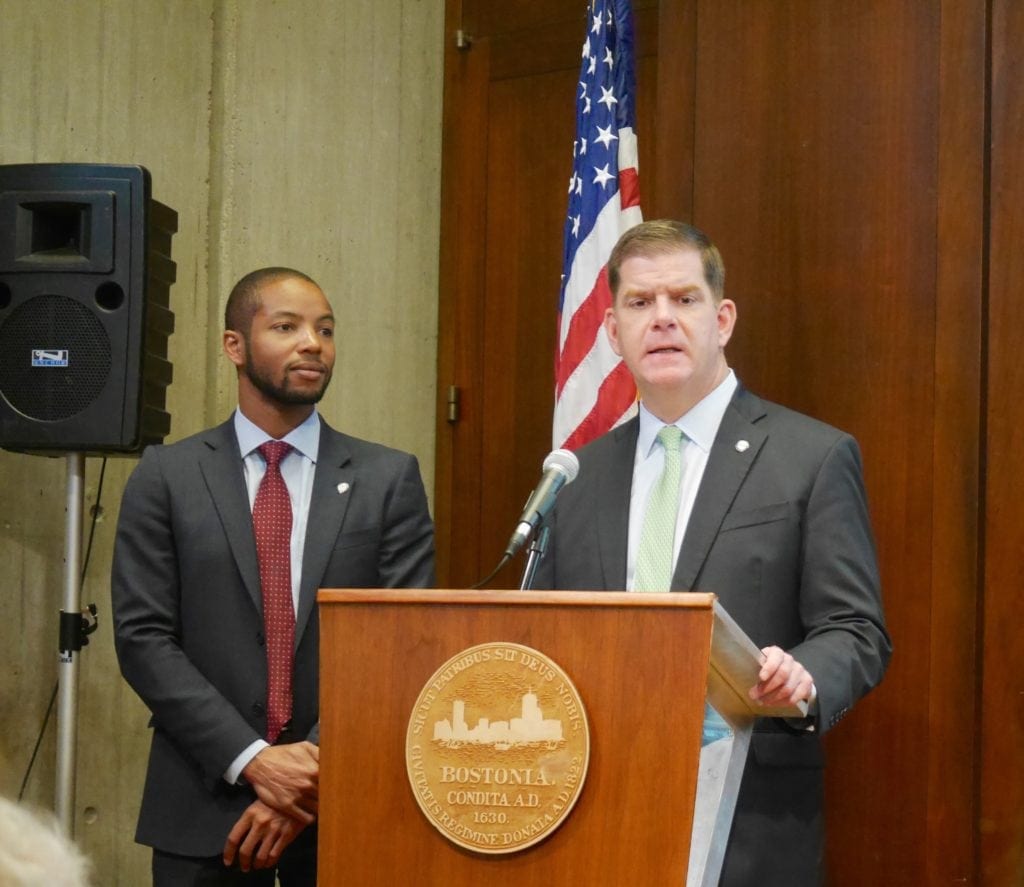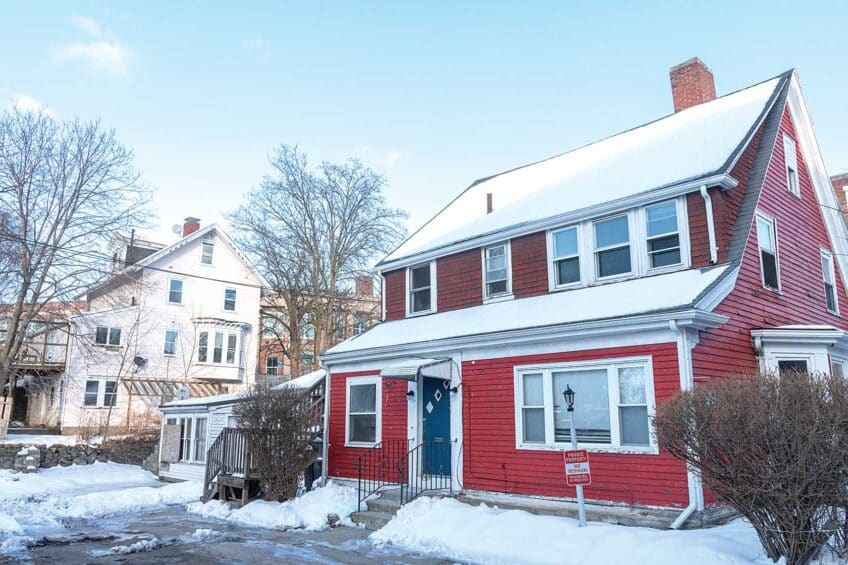
Mayor Martin J. Walsh on Thursday released the latest report from Climate Ready Boston, the city’s ongoing initiative to prepare Boston for the impacts of climate change.
“Climate change affects every aspect of life in our city,” Walsh said at a press conference about the report. “That’s why preparing for it is in the best interest of all Bostonians.”
While climate risks such as coastal and storm water flooding and summer heat waves are not new for Boston, in the coming years the city stands to see many hazards it already faces worsening as climate change continues.
“If these climate hazards are not addressed, they will threaten Boston’s livability and economic viability,” the report states. Importantly, it acknowledges that the hazards will “disproportionately impact those who lack sufficient resources to prepare for changing conditions or recover from emergencies.”
An earlier Climate Ready Boston report issued in June covered scientists’ projections of climate change in Boston, spelling out various scenarios from bad to worse for sea level rise, increased rainfall from storms, and extreme heat days over the next five or six decades. Climate change impacts are a matter not of if, but of how much; severity of impacts will depend on how much societies worldwide can and will reduce carbon emissions, which are generated largely from the burning of fossil fuels such as oil and gas.
The report released Dec. 8 focuses on two additional areas: an assessment of the vulnerabilities of the city’s economy, buildings, infrastructure and residents; and a set of “climate resilience” initiatives, from shoring up infrastructure to educating residents and businesses on preparedness measures to revising zoning codes to ensure that buildings can be built or adapted climate readiness.
Sections of the 300-plus-page report drill down into impacts in nine different focus areas, including specific city neighborhoods.
For example, Roxbury is not as vulnerable to coastal flooding as East Boston or Charlestown, but some streets such as Melnea Cass Boulevard already are flooded in heavy rainstorms. Roxbury’s relatively high proportions of children and low-income and disabled residents means the city will need to take care to ensure access to cooling centers and to resources, assistance and transportation needed after a weather-related emergency.
For each neighborhood, the report delves into the cost of such impacts as business interruption, structure losses, building content losses and mental stress and anxiety.
At the press conference, the mayor declined to comment on whether President-Elect Donald Trump’s cabinet picks — which include a climate change skeptic to lead the Environmental Protection Agency — will thwart or slow Boston’s efforts, except to say he’s taking a “wait and see” approach and to note that there still will be people in the EPA that the city can work with.
For better or for worse, it may take another Katrina- or Sandy-level disaster to jar the new administration into acknowledgement, action and funding. But, as the mayor, Boston Chief of Environment, Energy and Open Space Austin Blackmon and others emphasized, Boston is trying to stay ahead of the next disaster rather than reacting only in times of emergency.
“If we truly want to prepare for the future,” Walsh said, “we need to do it smart, and do it right.”
Climate Ready Boston is led by the city of Boston in a partnership with the Green Ribbon Commission with support from the Massachusetts Office of Coastal Zone Management, and the city says the initiative’s efforts are coordinated with other major planning efforts such as Imagine Boston 2030 and Go Boston 2030. The next phase of the Climate Ready Boston will focus on climate resiliency strategies for the major flood pathways in East Boston and Charlestown. The city also has received funding from the Barr Foundation to focus on resiliency in other at-risk neighborhoods.






